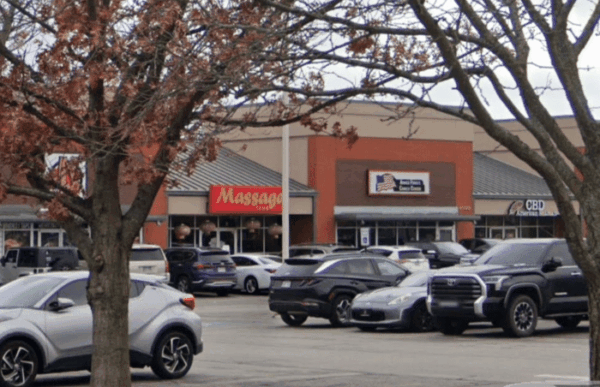
A disturbing case has surfaced in Rogers, where a customer reported being sexually assaulted during a massage session at Massage Tang located at 4500 W Walnut St #4, Rogers, AR 72756 on June 21. The alleged assault occurred around 4:00 p.m., and court documents describe the victim repeatedly asking the masseuse to stop, according to KNWA. However, the victim was allegedly dismissed with phrases like, "It’s okay, don’t worry about it."
Changjun Chen, 44, was arrested on August 2 by Rogers police. He now faces charges of rape and second-degree sexual assault following an investigation that identified him as the suspect.
Chen’s bond has been set at $400,000. His first court appearance is scheduled for September 8 in Benton County Circuit Court, where the case will move forward.
This case has raised alarm among residents, highlighting the importance of ensuring safety in professional service environments.

When a professional environment becomes the setting for abuse, victims are often left grappling with emotional, physical, and legal challenges. To better understand the legal steps available to those sexually assaulted by a masseuse, we spoke with Joshua Gillespie, a seasoned Arkansas attorney specializing in massage abuse cases. His insights offer clarity on how victims can hold individuals and businesses accountable while seeking recovery and justice.
Editor Darla Medina: What options does a victim have if they’ve been sexually assaulted by a professional, such as a masseuse?
Attorney Joshua Gillespie: Victims can pursue both criminal and civil actions. Reporting the incident to law enforcement is a critical first step, as criminal charges hold the perpetrator accountable under the law. On the civil side, victims can file lawsuits against the individual or even the business if negligence contributed to the assault.
Medina: Could you elaborate on how a business might bear responsibility?
Gillespie: If a business failed to conduct proper background checks, ignored prior complaints, or lacked safeguards to protect clients, it could be held liable for creating an unsafe environment. These cases often hinge on whether the business took reasonable steps to prevent harm.
Medina: What would you say to individuals hesitant to come forward?
Gillespie: It’s understandable to feel apprehensive, but victims should know they’re not alone. Reporting the incident can prevent further harm, and legal action can provide both justice and financial compensation to help with recovery. Speaking with an experienced attorney can clarify the options in a confidential setting.
Victims of abuse and their families don’t have to face these challenges alone. Legal support can provide the guidance and strength needed to navigate this difficult time. If you or a loved one has experienced sexual assault by a professional, our team is here to help. Contact us today for a free, confidential consultation to explore your options and take action.
 info@legalherald.com
info@legalherald.com